Herb-growing tips, how to attract waxwings and more from our pros.

Heather Dawson CHINCOTEAGUE ISLAND, VIRGINIA
Kenn and Kimberly: Cedar waxwings can be tantalizing. For most of the year they wander in flocks, seeking trees with good crops of small fruits or berries. During fall, winter and spring, a flock may suddenly arrive in a rush, chowing down on fruits for a short while, and then leave just as abruptly. In the summer nesting season, single waxwings or pairs are quiet and easy to overlook. The best thing to do is to plant more trees and shrubs that bear fruits at different seasons—native crabapples, dogwoods, mountain ash, eastern red cedars and others—and have faith that waxwings will show up eventually.
Q This bird hung out with a house finch at my sunflower seed feeder. It looks like a house finch, but the coloring is not typical. What kind of bird is this?
Jean Bullock DU QUOIN, ILLINOIS
Kenn and Kimberly: What you have there is a house finch with a fascinating color variation. Male house finches are usually marked with red, but sometimes those red areas are replaced with orange or yellow or some of both. The red pigment in the feathers is affected by what the finch eats, so there might have been deficiencies in the bird’s diet back when this set of feathers was growing in. If this individual continues to visit your yard, you may see it develop the normal red coloring the next time it molts new feathers.
Q I keep my amaryllis plants outdoors in the spring and summer, and one year they bloomed! Is that normal, and should I expect that in the future?
Peggy Haskin RACINE, WISCONSIN
هذه القصة مأخوذة من طبعة December/January 2019 من Birds & Bloom.
ابدأ النسخة التجريبية المجانية من Magzter GOLD لمدة 7 أيام للوصول إلى آلاف القصص المتميزة المنسقة وأكثر من 9,000 مجلة وصحيفة.
بالفعل مشترك ? تسجيل الدخول
هذه القصة مأخوذة من طبعة December/January 2019 من Birds & Bloom.
ابدأ النسخة التجريبية المجانية من Magzter GOLD لمدة 7 أيام للوصول إلى آلاف القصص المتميزة المنسقة وأكثر من 9,000 مجلة وصحيفة.
بالفعل مشترك? تسجيل الدخول
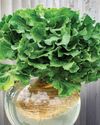
Basics of Hydroponics
Use these top tips and plant picks to have a successful soil-free garden
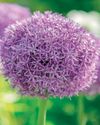
Rooted in Resilience
These hardy perennials will thrive in most zones
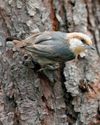
Social and Supportive
Brown-headed nuthatches take a helpful approach to raising their young
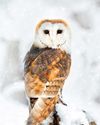
All About Owl Pellets
And why you should give a hoot about them
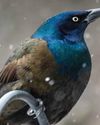
Ask the Experts
Advice from our pros about houseplants, bird feeding and more
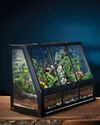
BRING THE OUTDOORS IN
Making a terrarium is about as close as you can get to a Zen DIY project. Once you have gathered the proper materials and squared away your plant selections, it's as simple as layering it all together and watching your mini ecosystem thrive. Here, I'll walk you through my foolproof process and cover all the required elements for good filtration, healthy soil, strong root growth and resistance against fungus and disease.

GROW THIS. NOT THAT
Six easy-to-grow houseplants—and six that may not be the right choice for you

Winter MAGIC
Forecasts may be frigid, but grab your binoculars because birding opportunities are still incredible
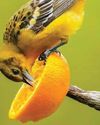
Sense or Nonsense? - Why some birds can taste and smell - but others can't
Does a porcelain berry taste like a blueberry to a gray catbird? Does a block of lard smell like frying bacon to a northern flicker? The short answer is no. While some avian species do have a well-adapted sense of taste or smell, they can't distinguish between flavors and odors the way humans can. They're not picking up every ingredient in the suet you put out, says José Ramírez-Garofalo, an ornithology researcher at Rutgers University in New Jersey and the director of Freshkills Biological Station in Staten Island, New York.
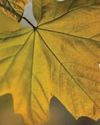
Maple Mania - Amazing facts about this fall foliage mainstay
Amazing facts about this fall foliage mainstay